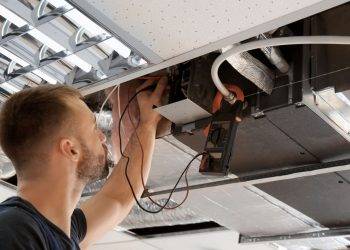The most compelling investigation into workplace efficiency begins with office system furniture—a strategic infrastructure that Singapore’s leading enterprises have quietly perfected while their competitors remain trapped in conventional thinking about workplace design. The evidence reveals systematic approaches to productivity engineering that extend far beyond aesthetic considerations.
The Market Intelligence: Decoding the Numbers
Analysis of global market dynamics exposes the scale of this transformation. The office furniture sector is projected to reach between $93.49 billion and $180.20 billion by 2030-2032, with compound annual growth rates ranging from 6.24% to 7.17%. Yet these figures obscure a more revealing pattern: modular office systems are experiencing accelerated growth at 5.5% CAGR, indicating sophisticated companies’ recognition of adaptive workplace infrastructure as a competitive advantage.
Singapore’s workplace statistics provide compelling context for this shift. Research indicates that 64% of workers in ASEAN reported productivity increases through hybrid work arrangements, while 56% of Singapore employees specifically noted improvements in work quality. This data reveals the correlation between flexible workplace systems and measurable performance outcomes.
The Strategic Framework: Understanding System Integration
Investigation into Singapore’s most successful organisations reveals systematic approaches to modular workplace systems that competitors consistently underestimate. These companies understand that integrated office solutions function as operational infrastructure rather than decorative elements.
The evidence points to several critical advantages of systematic furniture approaches:
-
Rapid Reconfiguration Capability: Modular systems enable quick workspace transformation to accommodate changing team dynamics and project requirements
-
Space Optimisation Under Pressure: With Singapore’s commercial real estate costs climbing, efficient space utilisation becomes directly measurable in financial terms
-
Scalability Without Disruption: Growing organisations can expand workspace capacity without wholesale furniture replacement or significant operational interruption
-
Productivity Multiplication: Systematic workplace design creates measurable improvements in employee output and collaboration effectiveness
The Singapore Context: Regional Workplace Evolution
Singapore’s business environment provides unique insights into systematic workplace furniture implementation. Companies have transitioned from traditional fixed workstations towards flexible spaces, implementing hot-desking where staff can occupy any available workstation, creating autonomous and collaborative environments.
This transformation demands furniture systems capable of supporting diverse work styles within constrained space parameters. The investigation reveals that organisations implementing comprehensive modular systems report enhanced operational flexibility and improved space utilisation metrics.
The Technology Integration Factor
Analysis of Singapore’s workplace technology adoption reveals sophisticated integration between furniture systems and digital infrastructure. Smart conference rooms featuring interactive boards, sound-cancelling technology, and seamless video conferencing capabilities require furniture systems designed for technological integration.
Energy-saving smart lighting and temperature controls, automated systems that adjust based on occupancy patterns, and IoT sensors that track workspace utilisation patterns all require furniture infrastructure capable of supporting these technological implementations. Companies implementing integrated approaches report measurable improvements in operational efficiency and employee satisfaction.
The Psychological Architecture: Behavioural Engineering
The investigation uncovers how systematic furniture design influences employee behaviour and productivity patterns. Singapore’s leading companies leverage modular systems to create zones for different activities—collaborative spaces with interactive capabilities alongside quiet areas for focused work.
Research indicates that flexible workspace designs accommodate diverse work styles, offering collaborative zones with interactive whiteboards alongside spaces designed for concentrated tasks. This systematic approach to spatial psychology creates measurable improvements in both individual productivity and team collaboration metrics.
The Economic Intelligence: Return on Investment Analysis
Financial analysis reveals that systematic furniture approaches generate quantifiable returns through multiple channels. Singapore companies implementing comprehensive modular systems report:
-
Reduced Space Requirements: Flexible systems enable higher employee density without productivity loss
-
Lower Reconfiguration Costs: Modular approaches eliminate expensive renovations when organisational requirements change
-
Enhanced Talent Retention: Quality workplace environments directly impact recruitment success and employee satisfaction
-
Improved Operational Efficiency: Systematic design reduces time lost to workspace inadequacies and collaboration friction
The Implementation Strategy: Systematic Deployment
The evidence reveals that successful organisations approach office furniture systems through careful strategic planning rather than reactive purchasing decisions. Singapore’s most competitive companies implement systematic evaluation processes:
-
Workflow Analysis: Comprehensive examination of how work occurs within the organisation
-
Growth Projection Integration: Furniture systems designed to accommodate anticipated organisational development
-
Technology Requirements Assessment: Infrastructure planning for current and projected technological needs
-
Employee Engagement Measurement: Systematic evaluation of how furniture choices impact productivity and satisfaction metrics
The Sustainability Dimension: Long-term Strategic Value
Investigation into emerging trends reveals that sustainable modular furniture systems provide additional competitive advantages. Singapore’s government incentives for environmentally responsible business practices create measurable value for companies implementing sustainable furniture approaches.
Locally produced and recycled materials reduce environmental footprint while supporting regional supply chains. Energy-efficient furniture systems with sustainable production methods align with Singapore’s broader environmental responsibility initiatives, creating both operational and regulatory advantages.
The Future Architecture: Emerging Patterns
Analysis of developmental patterns suggests that the most sophisticated companies are already implementing next-generation systematic approaches. Biophilic design elements integrated into modular systems, bringing nature indoors through living walls and organic textures, create measurable improvements in employee wellness and cognitive performance.
Smart technology integration continues advancing, with furniture systems incorporating posture-tracking sensors, automated adjustment capabilities, and productivity optimisation algorithms. These developments represent the evolution from passive furniture to active productivity infrastructure.
The Competitive Intelligence: Strategic Differentiation
The investigation establishes that systematic furniture approaches function as competitive differentiators in Singapore’s talent market. Companies with sophisticated workplace systems report enhanced recruitment success and improved employee retention rates.
This advantage extends beyond immediate productivity gains to encompass brand reputation, employee satisfaction metrics, and long-term organisational resilience. Companies that approach workplace furniture systematically demonstrate operational sophistication that influences both internal performance and external market perception.
The Strategic Conclusion
The evidence demonstrates that office system furniture represents far more than workspace furnishing—it functions as operational infrastructure that directly influences organisational capability and competitive position. Singapore’s most successful companies understand this relationship and implement systematic approaches that generate measurable returns through improved productivity, enhanced flexibility, and superior talent attraction capabilities.








